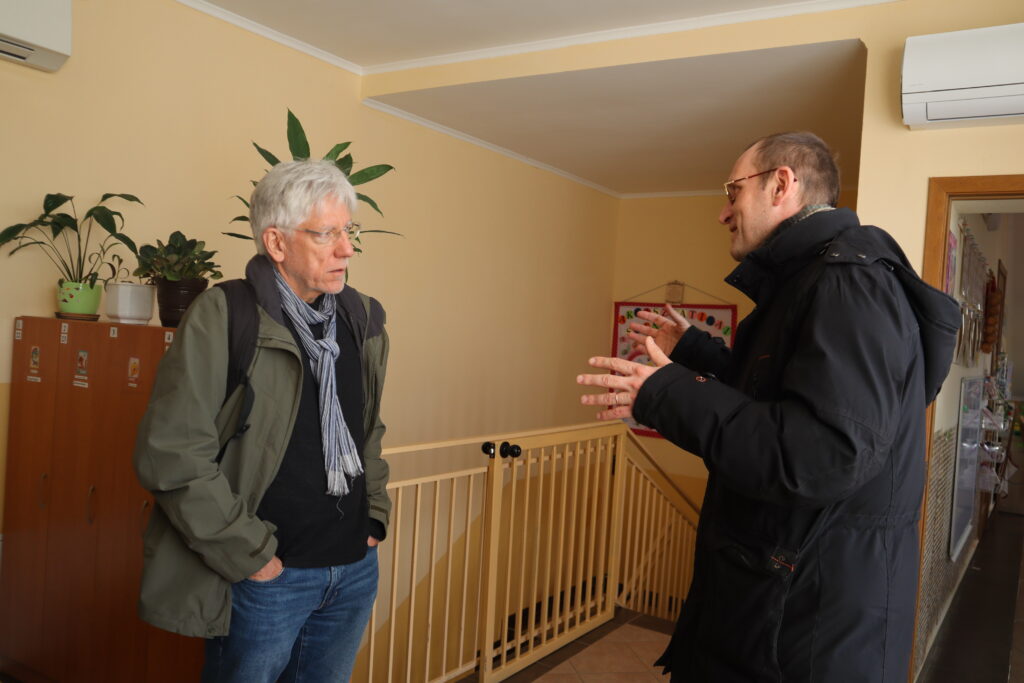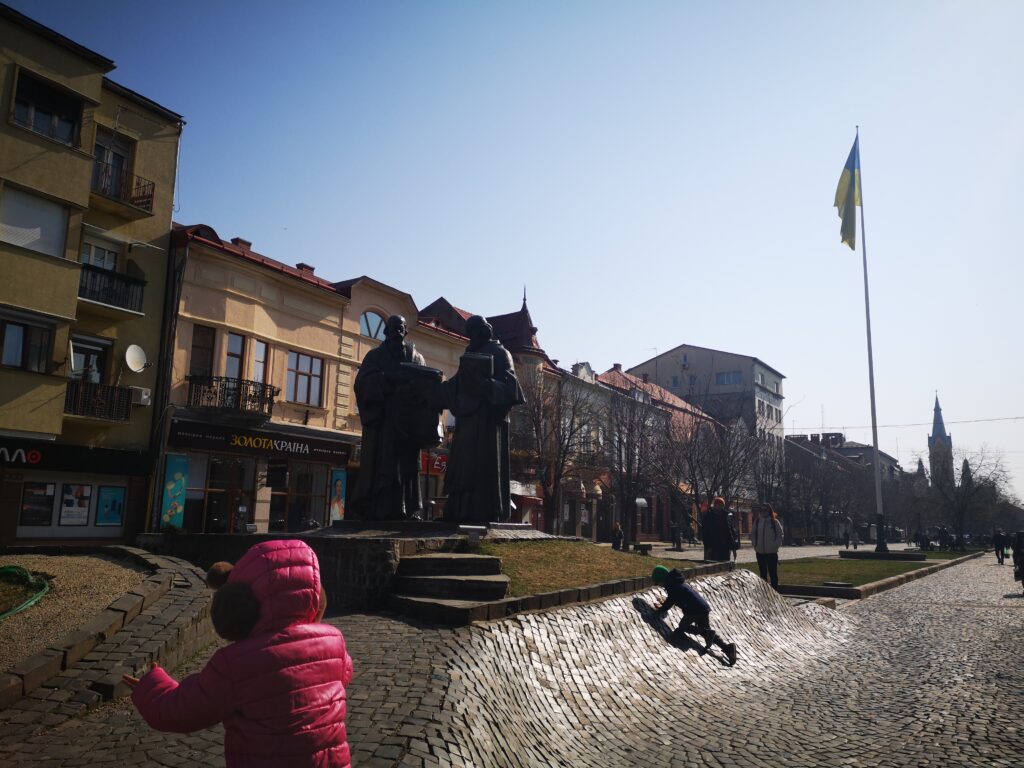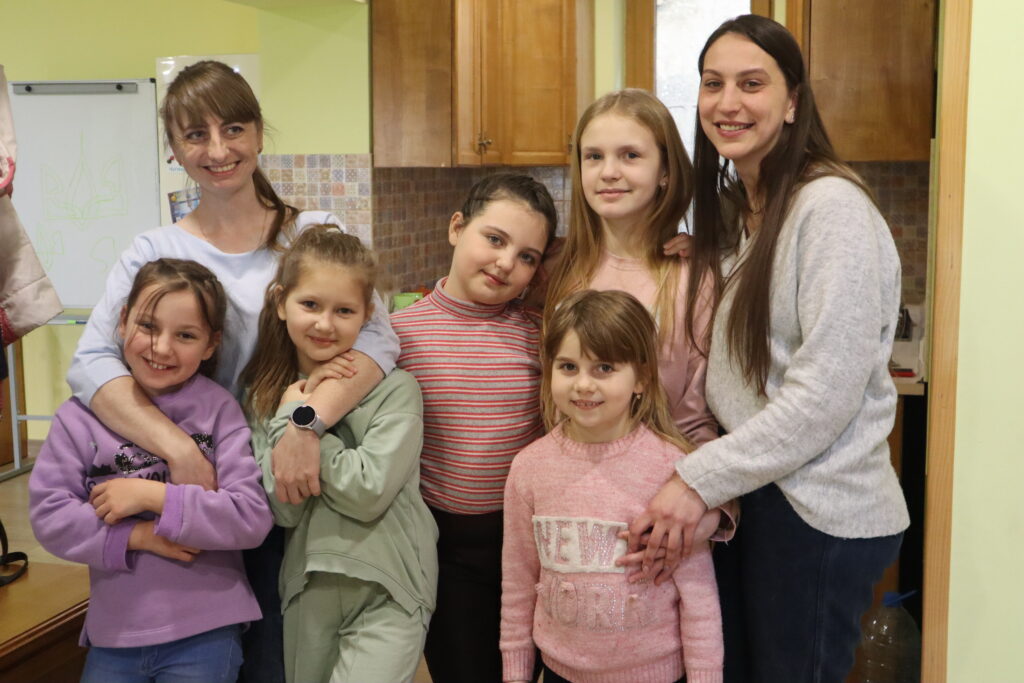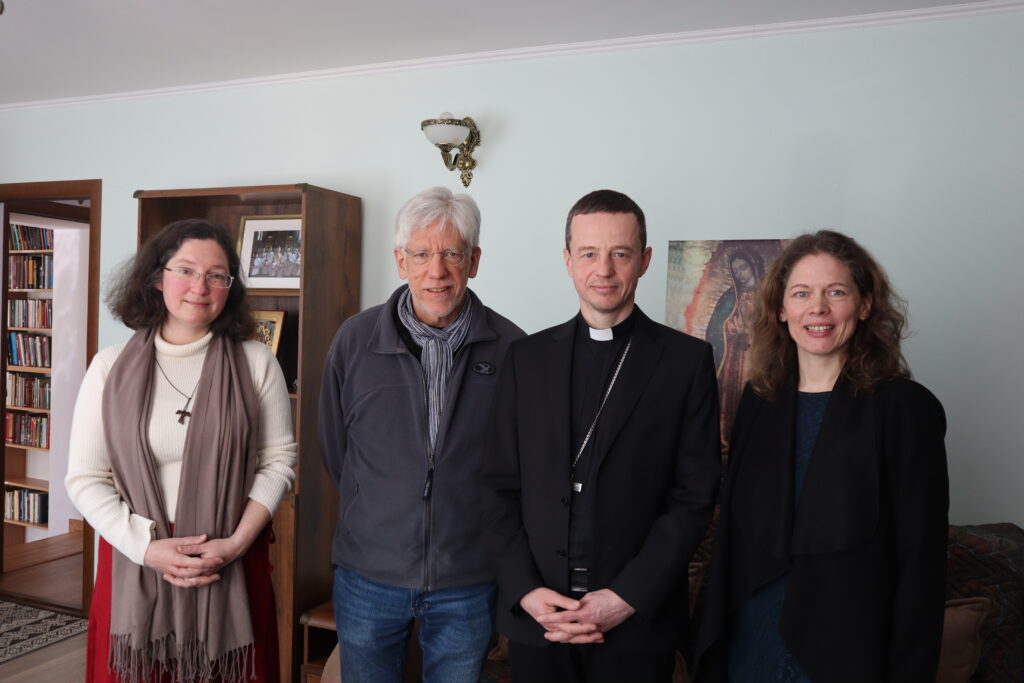Which were the main reasons that motivated you to travel to Western Ukraine (and Hungary)?
We travelled to Mukatschewo in Trans-Carpathian Ukraine to see first-hand something of the humanitarian need and other conditions in the war torn country. We also wanted to how the CSI-supported aid operations are conducted. Mukatschewo is, at the moment, one of the safest parts of the Ukraine. It is south of the Carpathian Mountains and about a 45 minute drive from the largely demilitarized Hungarian border. Because of its relative security it has become the hub of many international humanitarian operations. Humanitarian aid flows into Mukatschewo from other European countries, and from their it is dispatched to the victims in cities that are either besieged or occupied. It is also a safe haven for tens of thousands of displaced who have fled combat zones, but want, at least for the time being, to remain in their country rather than seeking refuge abroad. We were very impressed with the dedication and professionalism of CSI’s partner – Caritas, Spes. We were also struck by the calm and order that prevailed, notwithstanding the great influx of the displaced and the threat of war engulfing the whole country, including Trans-Carpathia.




What did the displaced people you met tell you? Were they mainly female and children?
We heard from the displaced and on-the-spot church workers stories of individuals and families who have felt compelled to flee their homes. Some have fled because their bombardment in their neighborhoods. One displaced woman showed us photos of the bombed out, still smoldering apartment blocks on her street. She also told of the harrowing escape by car with traumatized children sitting in silence for 14 hours until they reached safety. We also heard from our partners about the suffering of those who are still in besieged and occupied cities that have run out of food, medicines and other necessities of life. The displaced are male, female, children and adult. Wherever possible, families flee together. Younger men in military service, of course, must remain on duty.
Could you tell us briefly which experiences or encounters particularly affected you personally?
There were three encounters that made a powerful impression on me.
The first was of a mother and daughter who were given shelter by the women of a Focalari community. We did not actually see the mother because she was so depressed that she rarely come out of their small room. The little girl wandered around the house looking for someone to talk to or something with which to amuse herself. She was missing her childhood friends and could not go out on the streets alone to play. But she had not lost her smile and spirit. Fortunately, she found herself in a caring Christian community that took a loving interest in her.
The second impression is of the rapid and courageous response of our Christian partners. They put love and professionalism into action in a way that would earn the admiration and respect of every CSI supporter. They are a true reflection of Christian Solidarity International in action.
The third impression is how much the people of the region have suffered over the centuries. I was reminded of this when I spotted two maps on the wall of the office of the Latin-rite bishop of Mukaschewo. One showed the ethnic and religious demography of the region at the beginning of World War II. The second showed the present-day reality. The once large Jewish community was decimated. Other vulnerable minority communities have diminished significantly. It was a reminder of all the armies that ¨have swept through what is today Ukraine, leaving death and destruction in their wake, as the powers and principalities of the world have competed with each other for power and prestige. This grim history is being repeated today.
What kind of help does CSI provide for the victims?
CSI provides the basic necessities of life: food, shelter, medicines etc. But there is another important dimension to the emergency aid operations. The provision of companionship and the expression of God’s love are integral to the aid operations supported by CSI.

